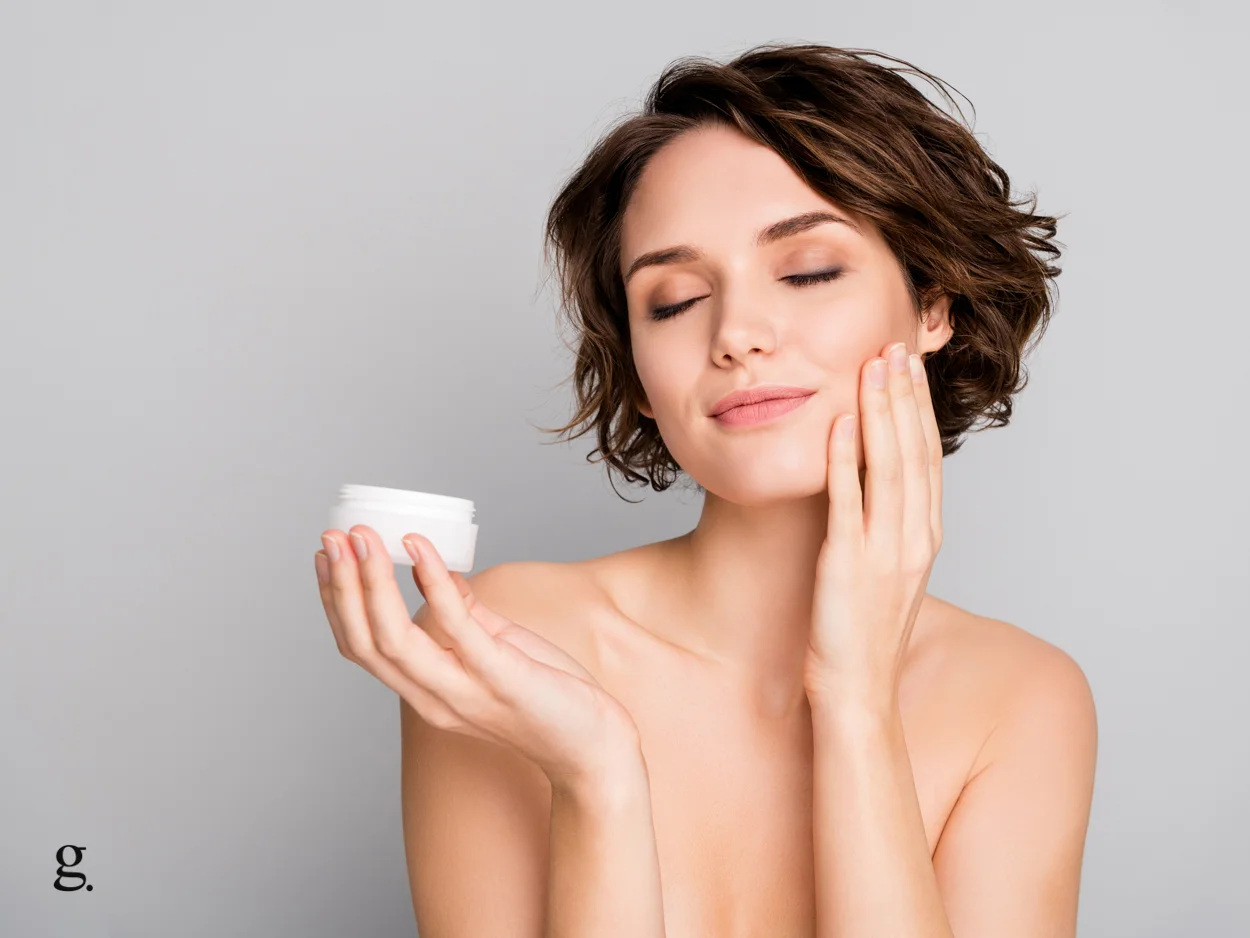Picture this: You’re standing in front of your mirror, pondering your skincare routine, and suddenly you realize there’s a world of difference between the lotions and potions you use during the day and those you apply at night. You’re not alone, my friend. Many people are unaware of the distinctions between day creams and night creams, but fear not—we’re here to help you demystify these two essential skincare products.
As you begin to explore the skincare universe, it’s essential to understand that day creams and night creams serve different purposes and offer distinct benefits. So, let’s break down the key differences between these two types of creams, shall we?
What is Day Cream?
Day cream is a type of moisturizer that is specifically designed to protect and nourish the skin during the day. The primary function of day creams is to provide a protective barrier against environmental stressors such as sunlight, pollution, and other environmental irritants that can damage the skin. Day creams are also formulated to provide hydration to the skin and create a smooth base for makeup application.
Day creams typically have lightweight, non-greasy formulas that are quickly absorbed by the skin, making them suitable for use before makeup application. They often contain ingredients such as antioxidants, vitamin C, and SPF that provide protection against environmental damage and UV rays.
What is Night Cream?
Night cream is a type of moisturizer that is formulated to support the skin’s natural repair processes while you sleep. Night creams contain rich, thicker formulas that provide intense nourishment to the skin and help it recover from the day’s stressors. They are designed to penetrate deep into the skin and provide long-lasting hydration.
During the night, your skin’s natural repair processes are at their most active. Night creams work to support these processes and provide essential nutrients that help to repair and rejuvenate the skin. They often contain ingredients such as retinol, hyaluronic acid, and peptides that promote collagen production, reduce fine lines and wrinkles, and improve overall skin texture.
Key ingredients differences
Day creams often contain sun protection factors (SPFs) to shield your skin from harmful UV rays. They may also include antioxidants, such as vitamin C, which help combat free radicals and environmental damage. Moisturizing ingredients, like hyaluronic acid and glycerin, keep your skin hydrated and plump throughout the day.
Night creams, however, tend to focus on nourishing and repairing ingredients like retinol, peptides, and ceramides. These powerhouse components boost collagen production, promote cell turnover, and help restore your skin’s moisture barrier.
Night & Day Cream Formulas Can Vary, Which Means Results Can Too
Navigating the world of skincare products can be overwhelming, especially when it comes to choosing the perfect day or night cream. It’s important to remember that the formulas of these creams can vary significantly, which means the results you experience may differ as well. To help you find the right fit for your skin, keep the following factors in mind:
- Skin type: Your skin type—whether it’s oily, dry, combination, or sensitive—plays a crucial role in determining which day and night cream formulas will work best for you. For example, if you have oily skin, you may want to opt for oil-free, lightweight day creams and gel-based night creams. On the other hand, if you have dry skin, look for richer, more hydrating formulas that will provide ample nourishment.
- Active ingredient usage: As we mentioned earlier, day and night creams contain different ingredients that cater to specific skin concerns. Pay attention to these ingredients when selecting a product, and consider your personal skincare goals. For instance, if you want to target fine lines and wrinkles, choose a night cream with retinol or peptides. If you’re aiming to brighten your complexion, look for a day cream with vitamin C.
- Brand philosophy: Many skincare brands have unique philosophies, ranging from all-natural, organic formulations to high-tech, cutting-edge ingredients. Consider what matters most to you—whether it’s sustainability, cruelty-free practices, or innovative technology—and choose a brand that aligns with your values.
- Trial and error: Finding the perfect day and night creams for your skin can be a process of trial and error. Don’t be afraid to test different products to discover which ones work best for you. Additionally, don’t hesitate to consult a dermatologist or skincare expert if you need guidance in choosing the right products for your skin’s unique needs.
The Benefits of Day & Night Creams
Understanding the unique benefits of day and night creams is crucial when tailoring your skincare routine to your specific needs. Let’s dive into the advantages each type of cream offers to help you make informed decisions for your skin.
Day Cream Benefits
- Protection: Day creams are designed to safeguard your skin from harmful environmental factors, such as UV rays, pollution, and free radicals. Ingredients like SPF and antioxidants help shield your skin from damage and prevent premature aging.
- Hydration: Day creams contain moisturizing agents like hyaluronic acid and glycerin to maintain your skin’s hydration levels. This ensures your skin stays soft, supple, and plump throughout the day.
- Smooth makeup application: Lightweight and fast-absorbing, day creams provide an ideal base for makeup. They help even out your skin tone, minimize the appearance of pores, and prevent makeup from settling into fine lines.
Night Cream Benefits
- Repair and rejuvenation: As you sleep, your skin undergoes natural repair processes. Night creams support these processes with potent ingredients like retinol and peptides, which promote collagen production and cell turnover. This helps reduce the appearance of fine lines, wrinkles, and other signs of aging.
- Intense hydration: Night creams often have richer, thicker textures to deliver deep nourishment and hydration to your skin. Ingredients like ceramides help restore your skin’s moisture barrier, ensuring it stays healthy and well-hydrated.
- Improved skin texture and tone: By supporting your skin’s natural repair processes and delivering potent nourishing ingredients, night creams can improve your skin’s overall texture and tone. With consistent use, you’ll notice a smoother, more even complexion with a radiant glow.
Incorporating both day and night creams into your skincare regimen allows you to provide your skin with the comprehensive care it needs to stay healthy, radiant, and youthful.
How to Use Day and Night Creams in Your Skincare Routine
Incorporating day and night creams into your skincare routine is a simple yet essential step for achieving healthy, radiant skin. Follow these steps to maximize the benefits of these creams and ensure your skin is well-cared for around the clock.
Day Cream Application
- Cleanse: Start your morning routine with a gentle cleanser to remove any impurities, excess oil, or traces of your night cream. This will create a clean canvas for your day cream and other skincare products.
- Tone: Apply a toner that’s suitable for your skin type to help balance your skin’s pH and prep it for better absorption of the day cream and any other products you’ll be using.
- Treat: If you use any serums or spot treatments, apply them after your toner. Allow a few minutes for these products to absorb before moving on to the next step.
- Moisturize: Apply your day cream evenly over your face and neck. Make sure the cream has SPF if you’ll be exposed to sunlight. Gently massage the cream into your skin using upward, circular motions, ensuring it’s fully absorbed.
- Prime: If you wear makeup, apply a primer after your day cream to create a smooth base for your foundation and other cosmetics.
Night Cream Application
- Cleanse: Remove your makeup and cleanse your face thoroughly to eliminate any dirt, oil, and pollutants accumulated throughout the day. You may want to use a double cleansing method, starting with an oil-based cleanser followed by a water-based cleanser, for a deep clean.
- Tone: Apply a toner that suits your skin type to further purify your skin and prepare it for the night cream and any additional products.
- Treat: Apply any serums, essences, or targeted treatments you use as part of your evening routine. Give them a few minutes to absorb before moving on to the next step.
- Moisturize: Generously apply your night cream to your face and neck, massaging it in with gentle, upward, circular motions. The richer texture of night creams allows them to deeply nourish your skin as you sleep.
- Optional extras: If you use eye creams, facial oils, or sleeping masks, apply them after your night cream, following the instructions on the packaging.
Conclusion
Understanding the distinct purposes, functions, and benefits of day and night creams is crucial for achieving healthy, radiant skin. Day creams focus on protection, hydration, and creating a smooth base for makeup, while night creams work to repair, rejuvenate, and nourish your skin as you sleep.
By incorporating both types of creams into your daily skincare routine and selecting products that cater to your unique skin type and concerns, you’ll be well on your way to unlocking your skin’s full potential and maintaining a beautiful, glowing complexion.

